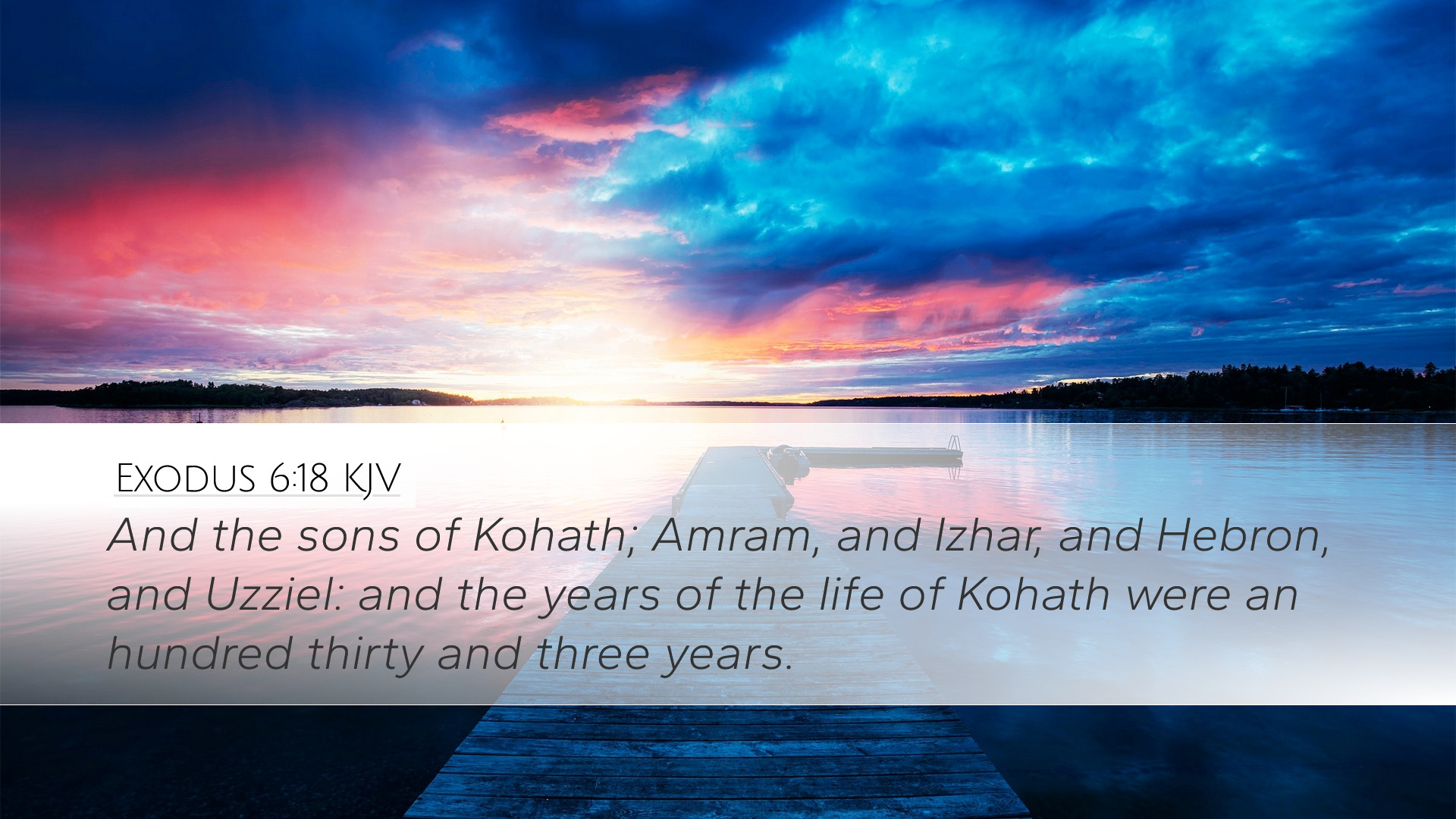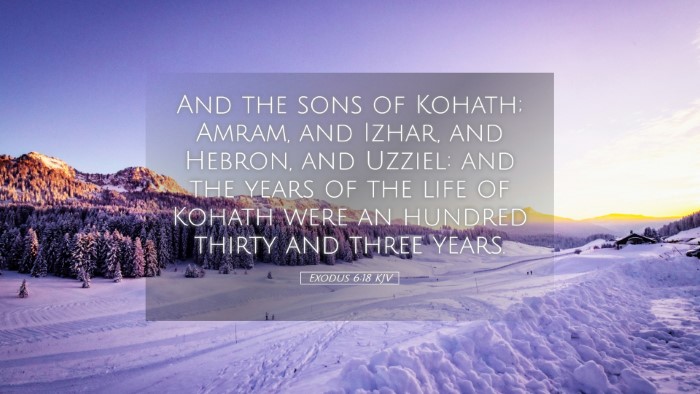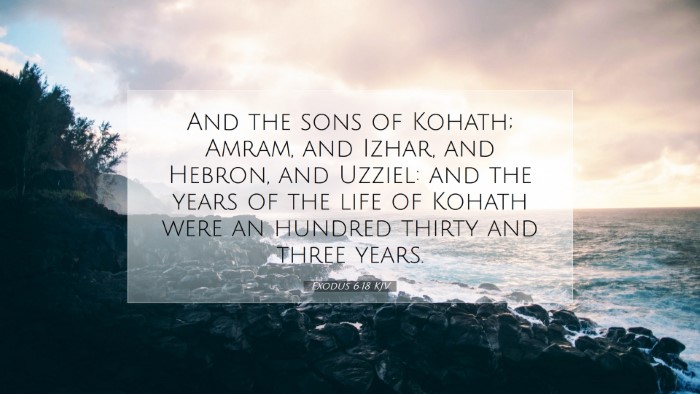Commentary on Exodus 6:18
Introduction
Exodus 6:18 states: “The sons of Kohath were Amram, Izhar, Hebron, and Uzziel; and the years of the life of Kohath were a hundred thirty-three years.” This verse introduces the genealogy of the Kohathites, part of the Levite clan, and sets the stage for understanding their significance in the service of the Tabernacle and in the history of Israel.
Genealogical Context
Matthew Henry's Perspective
Matthew Henry highlights the importance of genealogy in Scripture as a means to establish identity and lineage, particularly among the Levites. He notes that Kohath, as one of the sons of Levi, plays a vital role in the priestly duties that would be central to Israel’s worship. The mention of Kohath’s sons—Amram, Izhar, Hebron, and Uzziel—indicates the continuation and unfolding of God’s covenant promises through specific families, marking them for significant service.
Albert Barnes' Insights
Barnes elaborates on the roles of the sons of Kohath within the Levitical order, pointing out that Amram, the most prominent, would be the father of Moses and Aaron, central figures in Israel's narrative of deliverance. This lineage represents God's providential hand in securing leadership who would guide His people out of bondage. Thus, the genealogy serves not merely as a historical record, but as a theological foundation for understanding God's plan of salvation through particular individuals and their offspring.
Understanding the Kohathites' Role
Adam Clarke Notes
Clarke reflects on the responsibilities assigned to the Kohathites concerning the tabernacle and its furnishings, which were sacred elements necessary for Israel’s worship. He points out that their duties included carrying the Ark of the Covenant and other holy artifacts. This conveys the serious nature of their role—not merely as logistical support but as guardians of the divine presence among God’s people.
Spiritual Symbolism
The mention of Kohath and his sons serves symbolic purposes in the narrative of Exodus. Henry discusses how the names of Kohath's sons carry meanings that reflect the character traits and responsibilities bestowed upon them in service to God. For example, the name Amram can be interpreted as "high or exalted people," which underscores his crucial role as the father of leaders chosen to initiate divine deliverance.
Theological Implications
Covenantal Significance
At the heart of this verse is the theme of covenant loyalty. Barnes asserts that the listing of Kohath’s descendants connects to God’s enduring covenant with Levi, illustrating how committed God is to His promises. This genealogy signifies the continuation of holiness and priestly service through specific families, which many scholars point out emphasizes God's sovereignty in Israel’s history.
The Lesson of Faithfulness
There is a poignant lesson of faithfulness embedded in this genealogical record. Clarke emphasizes that each individual, from Kohath to his descendants, had a part to play in God’s grand narrative. This speaks to today’s believers about the importance of recognizing their role in the ongoing story of God's redemptive work. Every act of service, no matter how small, contributes to the overarching purpose of glorifying God.
Reflections for Modern Readers
For pastors, students, theologians, and scholars, Exodus 6:18 invites reflection on the themes of identity, service, and covenant faithfulness. The lineage of Kohath teaches us that our identities are deeply rooted in the God who calls us into His service. Our involvement in the church and the world as modern believers echoes the commitment seen in the Kohathites, reminding us that God utilizes every generation to fulfill His plans.
- Understanding Our Journey: Just as Amram was key to Israel’s deliverance, each of us is called to play a pivotal role in our own contexts.
- Commitment to Service: The Kohathites' dedicated service underlines the importance of commitment in ministry, which resonates with contemporary church leadership.
- Covenant Relationships: The familial connections among the Kohathites serve as a reminder of the relationships we build within the body of Christ, fostering unity and collaboration.
Conclusion
In summary, Exodus 6:18 not only records genealogical facts; it weaves a rich tapestry of theological truths that continue to inform our understanding of God's redemptive plan. By examining the insights from public domain commentaries, we see that the legacy of the Kohathites speaks to the overarching narrative of faithfulness, identity, and divine purpose that resonates through the canon of Scripture. Thus, the verse stands as a significant marker for both past and present followers of God as they navigate their callings in light of His enduring promises.


